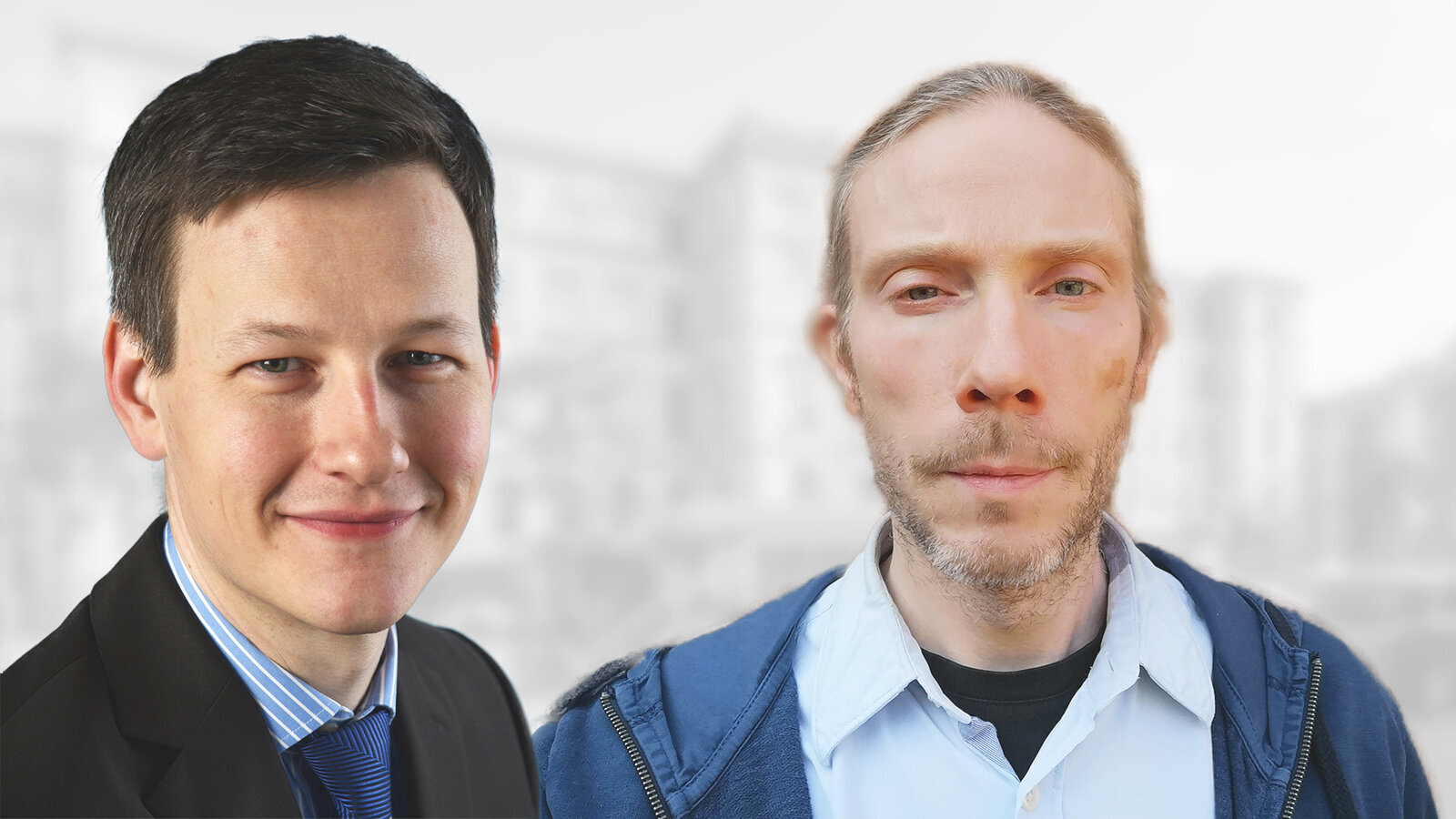New Appointments to the University
On 1 November 2020, two new professors were appointed to Chemnitz University of Technology by the President
-

On 1 November 2020, Prof. Dr. Martin Weigel (right in the picture) and Prof. Dr. Andreas Undisz were appointed to Chemnitz University of Technology. Photos: private / Collage: Jacob Müller
will join the Faculty of Natural Sciences at Chemnitz University of Technology. Both professors have already received their certificates of appointment. The ceremonial appointment by the President of Chemnitz University of Technology, Prof. Dr. Gerd Strohmeier, will be held at a later date due to the current situation at the university.
About Prof. Dr. Martin Weigel
Prof. Dr. Martin Weigel will hold the professorship of Simulation of Scientific Processes at the Faculty of Natural Sciences at Chemnitz University of Technology with effect from 1 November 2020. Prof. Weigel joins us from Coventry University, UK, where he was Professor at the Center for Fluids and Complex Systems at the Faculty of Engineering and Mathematics and Head of the High Performance Computing Center.
Weigel studied physics at the University of Mainz and was awarded his doctorate summa cum laude for a thesis on "Vertex Models on Random Graphs" submitted at University of Leipzig in 2002. Subsequently, he continued his research with a postdoctoral fellowship in Leipzig before moving to the University of Waterloo in Canada from 2003 to 2005. With a Marie Curie fellowship from the European Commission he then worked for two years at Heriot-Watt University in Edinburgh on topics at the interface between statistical physics and quantum gravity. In 2008 he established a junior research group on the physics of disordered magnetic systems at Johannes Gutenberg University Mainz with funding provided by the German Research Foundation (DFG) in its renowned Emmy Noether Program, which he headed until 2014. After serving as a locum professor at Saarland University in 2009/10, he moved to Coventry University in 2011, first as Senior Lecturer, from 2013 as Reader and since June 2020 as Professor.
His research focuses on the statistical physics of systems in equilibrium and non-equilibrium, with applications mainly in the physics of magnetic systems and soft matter. A special focus is on the investigation of effects of frozen disorder and frustration, such as in glasses, spin glasses and random-field systems.
In a wide range of work, he has contributed in particular to the further development of simulation methods such as Monte Carlo and molecular dynamics, with a special emphasis on the development of highly efficient algorithms especially for computations on highly parallel systems.
About Prof. Dr. Andreas Undisz
Prof. Dr. Andreas Undisz will take over the professorship of Electron Microscopy and Microstructural Analysis at the Faculty of Mechanical Engineering at Chemnitz University of Technology starting 1 November 2020. His last position was as a research assistant at the University of Jena.
Andreas Undisz studied materials science at the University of Jena. In 2009 he received his doctorate with the topic "Optimization of structural and functional properties of NiTi with pseudoelasticity/shape memory for medical applications." The dissertation received the grade summa cum laude.
He then moved to Massachusetts Institute of Technology (MIT) as a postdoctoral fellow with a scholarship. Starting in 2012 he served as group leader at the Otto Schott Institute for Materials Research in Jena. He submitted his habilitation thesis on "The variability of natural NiTi surfaces" to the University of Jena in 2018. In the same year, he was granted a teaching license and the title Privatdozent.
Andreas Undisz researches the interrelationships between the structure and properties of modern materials. In addition to aspects of material volume, his particular focus is on the fundamentals of the formation of material surfaces. He gains access to this using modern methods of electron microscopy and microstructure analysis. The findings are the basis for the targeted optimization of materials and their surfaces, e.g. for use in minimally invasive implants, energy generation, or mobility.
(Author: Matthias Fejes / Translation: Chelsea Burris)
Matthias Fejes
03.11.2020




